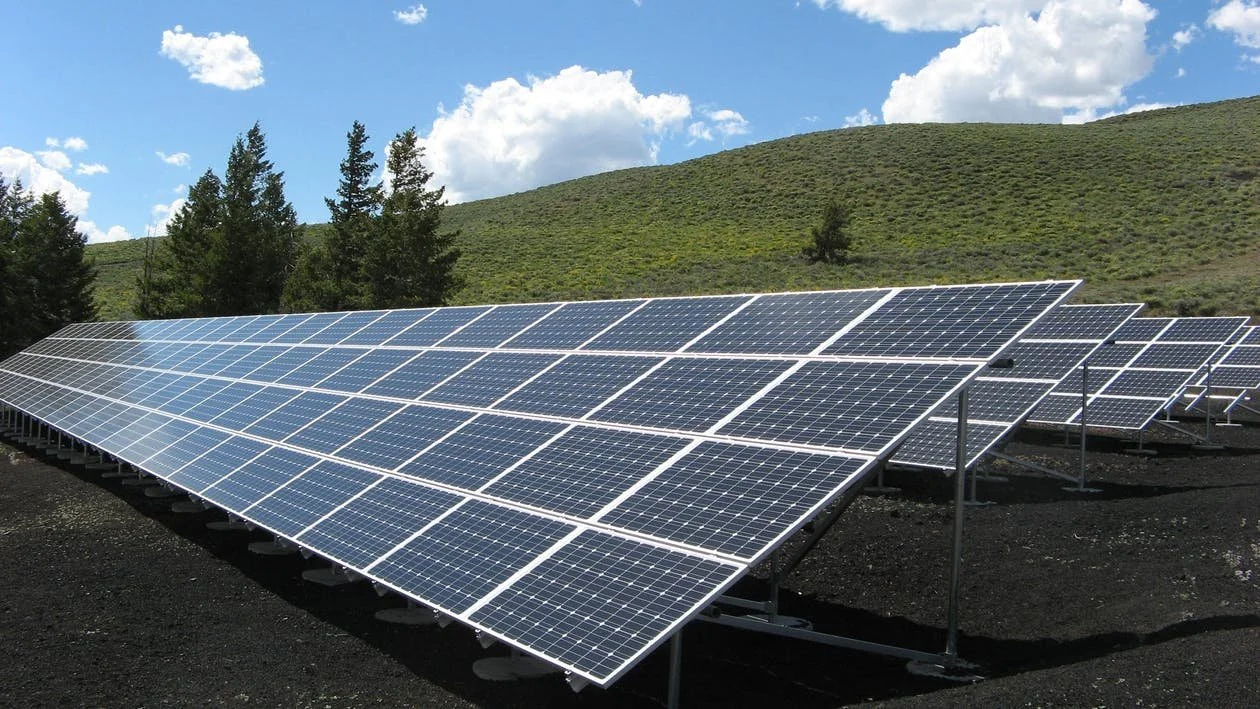Connecting Local and Tribal Governments to Federal Climate Funding
The Bipartisan Infrastructure Law (the Infrastructure Investment and Jobs Act) is a $1.2 trillion federal investment signed into law by former President Joe Biden in 2021. It designates nearly $400 billion to clean energy projects, with the goal of substantially lowering the nation's carbon emissions by 2030.
The Inflation Reduction Act of 2022 invests approximately $370 billion in clean energy development, climate change mitigation, and more.
These historic laws direct unprecedented federal investments toward building a more resilient and equitable climate future across America.
OUR PRIORITIES
Connect local leaders and share examples of projects that can fight climate change, protect public health, create quality jobs, invest in clean energy, and modernize our nation’s infrastructure.
Share resources with local and tribal governments and states to access federal funding for project implementation.
Elevate local success stories and blueprints for community action.
RECENT IMPACT
We have urged U.S. Senators in the Interior West to support the climate components in these investment packages.
We have hosted briefings, provided online resources, and offered technical assistance to help communities access federal dollars.
We worked with leaders in Montana, Nevada, and New Mexico who published op-eds on the importance of the Bipartisan Infrastructure Law and Inflation Reduction Act to limiting pollution and protecting disproportionately impacted communities.
GET INVOLVED
Do you have a question about applying for or implementing federal climate funds? Is there a resource WLN can provide that would help local and tribal governments navigate these new funding opportunities? Would you like to share a story with other leaders about how federal climate investments will benefit your community? Email jess@westernleaders.org and let us know, or take a moment to complete our survey to assess your needs.
upcoming deadlines
Energy Improvements in Rural or Remote Areas
The Energy Improvements in Rural or Remote Areas (ERA) program received $1 billion from the Bipartisan Infrastructure Law to improve the resilience, reliability, and affordability of energy systems in communities across the country with 10,000 or fewer people. ERA aims to fund community-driven energy projects that demonstrate new energy systems, deliver measurable benefits to customers and build clean energy knowledge and capacity throughout rural America. Deadline: August 28, 2025.
state-specific opportunities
New Mexico Match Fund
The New Mexico Department of Finance and Administration is offering three grant programs providing eligible entities with a reliable and nimble source of funding to increase competitiveness for hundreds of federal grant program opportunities that require local match. Eligible entities include state agencies, tribal governments, counties, municipalities, and political subdivisions. Deadline: Applications accepted on a rolling basis.
TOOLS & RESOURCES
-
This tool tracks over 35,000 federal investments, which can be filtered by category, state, congressional district, amount, and keyword.
-
This climate and infrastructure funding mapping tool by Grist can help track projects funded by the Inflation Reduction Act and Bipartisan Infrastructure Law nationwide and how they’re impacted by changes at the federal level.
-
The Climate Program Portal tracks climate investments from the Inflation Reduction Act and Bipartisan Infrastructure Law. You can find funding opportunities and deadlines through its opportunities dashboard and track awarded funding through its outcomes dashboard.
-
Climate Action Campaign’s Climate Wins map shows announced and awarded federal dollars for projects in clean energy and power, clean transportation, environmental resilience and remediation, infrastructure, and agriculture.
-
The Energy Policy Simulator is a free and open-source computer model developed by Energy Innovation LLC as part of its Energy Policy Solutions Project. It can help track the effectiveness of programs and grants under the Inflation Reduction Act and the Bipartisan Infrastructure Law by modeling their projected impacts on emissions, energy use, economic outcomes, and other factors.
-
Every second and fourth Wednesday of each month, Environmental Protection Network, in partnership with Lawyers for Good Government and Natural Resources Defense Council, hosts webinars and office hours for updates on federal funding, in-depth discussions on financial and programmatic compliance, and other key topics. Learn more and register here.
-
The Department of Energy’s interactive map allows users to see how the Inflation Reduction Act and Bipartisan Infrastructure Law have led to historic investments in clean energy jobs across the nation.
-
With federal programs and funding through the Inflation Reduction Act and Bipartisan Infrastructure Law at risk, Lawyers for Good Government is offering guidance to grantees and subawardees on how to protect their funds.
Questions can be submitted through this form, and L4GG will provide support as resources allow.
See also L4GG’s Clean Energy Tax Navigator, a free, interactive tool for tax credit guidance.
-
The U.S. Climate Alliance is a bipartisan coalition of 24 governors securing America's net-zero future by advancing state-led, high-impact climate action. Its climate policy database details state-level climate action across the nation, allowing users to view the chronological sequence of steps taken by a state or territory to reach a policy outcome.
OTHER
Energy Innovation: How Repealing the Inflation Reduction Act Would Harm the Economy
Energy Innovation: Potential U.S. Pathways on Climate, Jobs, and Health, Aug. 14, 2024
Guidance: BIL abandoned mine land grant for eligible states and the Navajo Nation
Guidance: BIL program to plug, remediate and reclaim orphan wells
National Governors Association: IIJA Implementation Resources
National Association of Counties: Implementing Infrastructure Investments at the County Level
National League of Cities: Accessing and Maximizing Infrastructure Funds
Webinar: Funding For Energy Communities
Webinar: How to Apply for and Manage Federal Grants
